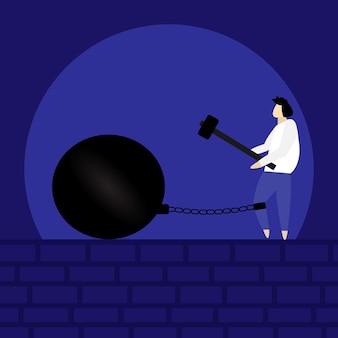
The impact of economic conditions on the real estate market
The economic conditions of a country have a direct impact on the performance of the real estate market. In a growing economy, with more purchasing power more and more people invest in real estate taking property prices higher. During a recession, with less money at hand, there is a low demand for property and hence real estate prices tend to fall. Looking back, 2022 was a great year for the real estate market. Across states, property prices rose by up to 50%. So how the performance of the housing market 2023 will be?
There are numerous economic factors leading to this phenomenal increase in demand for real estate. Let us explore these factors one by one.
Impact of Economic factors on the Real Estate Sector
Overall Health of the Economy. The Indian economy has been consistently growing for the last couple of years, the trend will continue in 2023 too. The world is watching India grow. No wonder it is not just the domestic investors, the Indian real estate market is attracting a lot of NRI investments too.
Rising Population
India’s population is expected to reach 1.5 billion by 2023. To cater to the needs of a population of this density, there will be a greater need for homes and commercial spaces.

Low lending rates
Covid-19 hit the economies hard, world-over. This unforeseen contingency affected every industry. To give a boost to economic activity in the country during the pandemic, the lending rates across products were drastically reduced by the RBI. That gave a major push to the ailing industries & the real estate market. Whenever home loan rates go down, there is a clear indication of in increase in property purchases. The cost of credit and demand for real estate demand are directly correlated.
RBI is continuously monitoring the economy and accordingly adjusting lending rates to suit the requirements. Although the lending rates have marginally increased yet they are attractive enough to be procured. Buying property comes easily with lower lending rates.

Government Push
The Govt. push in the form of subsidies supports the growth of industries. For the real estate sector, currently, there are several subsidies from the Govt. to promote more business; there are tax benefits & other incentives for the builders, and lending comes easily.
Infrastructure Development: In recent years the Govt. of India has given a tremendous focus on the development of infrastructure in the country. There have been enormous investments in the construction of world-class roads and highways, metros, ports, airports, etc. The govt. is leaving no stone unturned to connect the remotest areas of the country to the mainstream economy.

Travel for business would be easy, and at the same time, commercial and residential development alongside these projects would give a major boost to the real estate sector.
Not just the Central Govt. but many states announced measures to boost the real estate sector. Post-Covid, the Maharashtra Govt announced a deep stamp-duty cut to push sales.
Budget & Other Policies
The developer community is eyeing the Budget this year. They have been asking for GST rationalization for a long time, e.g., steel and cement currently have high GST rates of 28% and 18% respectively. The raw materials prices have surged considerably last year, moreover, the developers can’t claim input credit tax on the residential projects. All these factors combined will lead to higher property prices.

Overall, 2022 was a great year of the real estate sector with both residential and commercial sales soaring. The trend would continue in the housing market in 2023 too however it would be moderate given the rising prices of construction materials, and slightly higher lending rates. Economic trends directly impact the growth in the real estate sector and Govt. initiatives for the economy will decide the extent in 2023.

